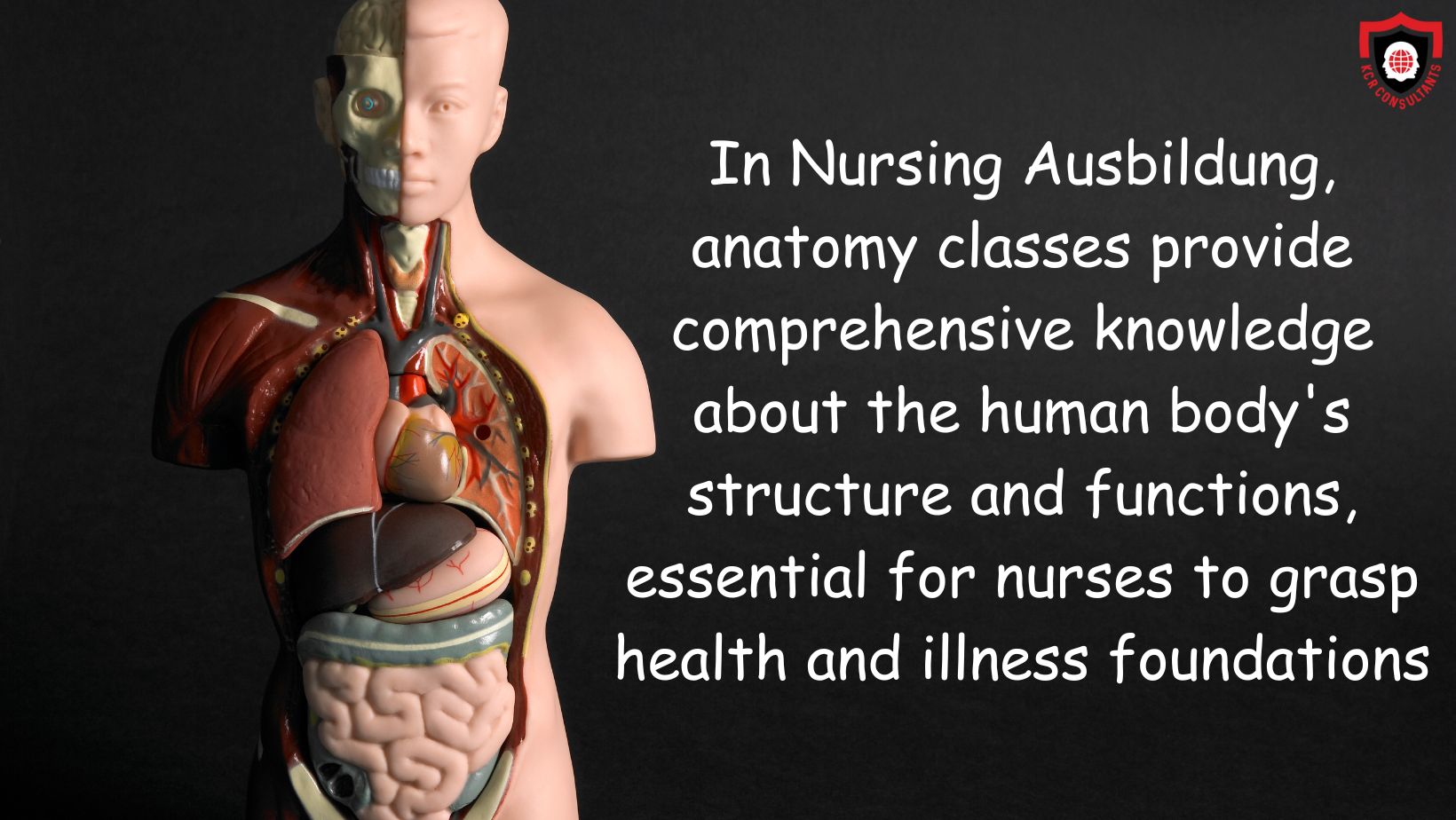The Road to Excellence: Nursing Ausbildung in Germany
Nursing Ausbildung in Germany is gaining prominence as a highly esteemed pathway for individuals aspiring to become health care professionals and nursing specialists. The combination of rigorous practical clinical experience and academic training sets the stage for a rewarding career in nursing.
Let us understand the nuances of Nursing Ausbildung in Germany, exploring its curriculum, benefits, opportunities for international students and role in the country’s healthcare landscape.
Understanding Nursing Ausbildung in Germany
Nursing Ausbildung in Germany is often considered a gold standard in nursing education. It provides a solid foundation for students, ensuring they are well-equipped with the knowledge and skills required to deliver quality patient care. The word “Ausbildung” in German translates to “apprenticeship training,” highlighting the program’s focus on practical learning and skill development.
Nursing Ausbildung Curriculum
One of the standout features of Nursing Ausbildung in Germany is its comprehensive curriculum. The program typically spans three years and covers many subjects essential for nursing practice.
The most highlighted is Clinical Experience: Nursing students in Germany spend a substantial portion of their education in clinical settings, gaining hands-on experience in hospitals, clinics and long-term care facilities. This practical training is a hallmark of Nursing Ausbildung in Germany and helps students build nursing skills and work experience in real-world scenarios.
Students learn various nursing techniques, including wound care, administering injections and providing patient comfort in Nursing Care.
Nursing Ausbildung‘s classroom teaching in anatomy teaches in-depth lessons about the human body’s structure and functions, which is crucial for nurses to understand the basis of health and disease.
The Pharmacology section thoroughly explains medications, their effects and safe administration, which is fundamental to nursing education.
The classroom teachings also emphasize Medical Ethics and Communication Skills required for nursing practice and effective communication with patients and colleagues.
Benefits of Nursing Ausbildung in Germany
- High-quality training: Germany is renowned for its commitment to education and Nursing Australia is no exception. The program maintains high standards and is regularly updated per the latest healthcare developments.
- Global Recognition: Nursing qualifications obtained in Germany are highly respected worldwide. Graduates find opportunities in Germany and other countries, making it a globally recognized qualification.
- Cultural Experience: International students who choose Nursing Ausbildung in Germany can immerse themselves in German culture, fostering personal growth and a broader perspective.
- Strong Job Prospects: The demand for skilled healthcare professionals in Germany remains consistently high, ensuring that Nursing Ausbildung graduates have excellent job prospects upon completing their studies.
Nursing Ausbildung for Non-EU Citizens
Germany’s commitment to diversity and inclusion extends to its education system, making Nursing Ausbildung accessible to non-EU citizens.
International students are encouraged to pursue their nursing studies in Germany, contributing to its rich cultural tapestry and healthcare workforce.
Application Process for International Students
Applying for Nursing Ausbildung in Germany as an international student involves several steps:
- Research and understand the Nursing Ausbildung Program: Research and understand the nursing programs in Germany, especially studying nursing through Ausbildung. Ensure the program you select meets your career goals.
- Language Proficiency: Language proficiency in German is crucial for nursing studies in Germany, as the program is conducted primarily in German. Most nursing Ausbildung program providers in Germany require applicants to demonstrate their German language skills by passing one of the approved tests, preferably at the Goethe test center.
- Admission Requirements: Review the specific admission requirements of the program provider, including academic prerequisites and any additional requirements for international students.
- Application and Documentation: Prepare your application documents, which typically include secondary school certificate and mark sheets, language proficiency certificates, a CV and a letter stating your motivation.
- Interview: Most program providers require an interview during the application and acceptance process. You must be prepared to discuss your motivation for pursuing nursing in Germany, primarily through Ausbildung.
- Visa Application: Once you receive an acceptance letter and training contract from the program provider, apply for a Nursing Ausbildung visa at the nearest German consulate in your home country.
The Role of Nursing Ausbildung in Germany’s Healthcare Landscape
Nursing Ausbildung is pivotal in Germany’s healthcare system, known for its efficiency and quality. Graduates of the program contribute significantly to the nation’s healthcare workforce, ensuring patients receive optimal care.
Patient-Centered Care: Nurses trained through Nursing Ausbildung are equipped with the skills to provide patient-centered care. They focus on patients’ holistic well-being, addressing their physical health and emotional and psychological needs.
Collaboration in Healthcare Teams: Nursing professionals in Germany work collaboratively with physicians, therapists and other healthcare providers. This interdisciplinary approach ensures that patients receive comprehensive care.
Meeting the Demands of an Aging Population: Germany, like many developed countries, faces the challenge of an aging population. Nursing graduates play a vital role in caring for elderly patients, promoting their quality of life and independence.
Innovation in Healthcare: Nursing Ausbildung programs in Germany are at the forefront of incorporating innovative healthcare technologies and practices into the curriculum. This prepares graduates to adapt to the evolving healthcare landscape.
Conclusion
Nursing Ausbildung in Germany is a beacon of excellence in nursing education, offering a robust curriculum, practical experience and numerous benefits for both domestic and international students.
Aspiring nurses worldwide can seize the opportunity to receive a world-class education, contribute to Germany’s healthcare system and embark on a fulfilling nursing career.
With its countrywide recognition in Germany and strong job prospects, Nursing Ausbildung in Germany continues to shine as a pathway to success in healthcare.










